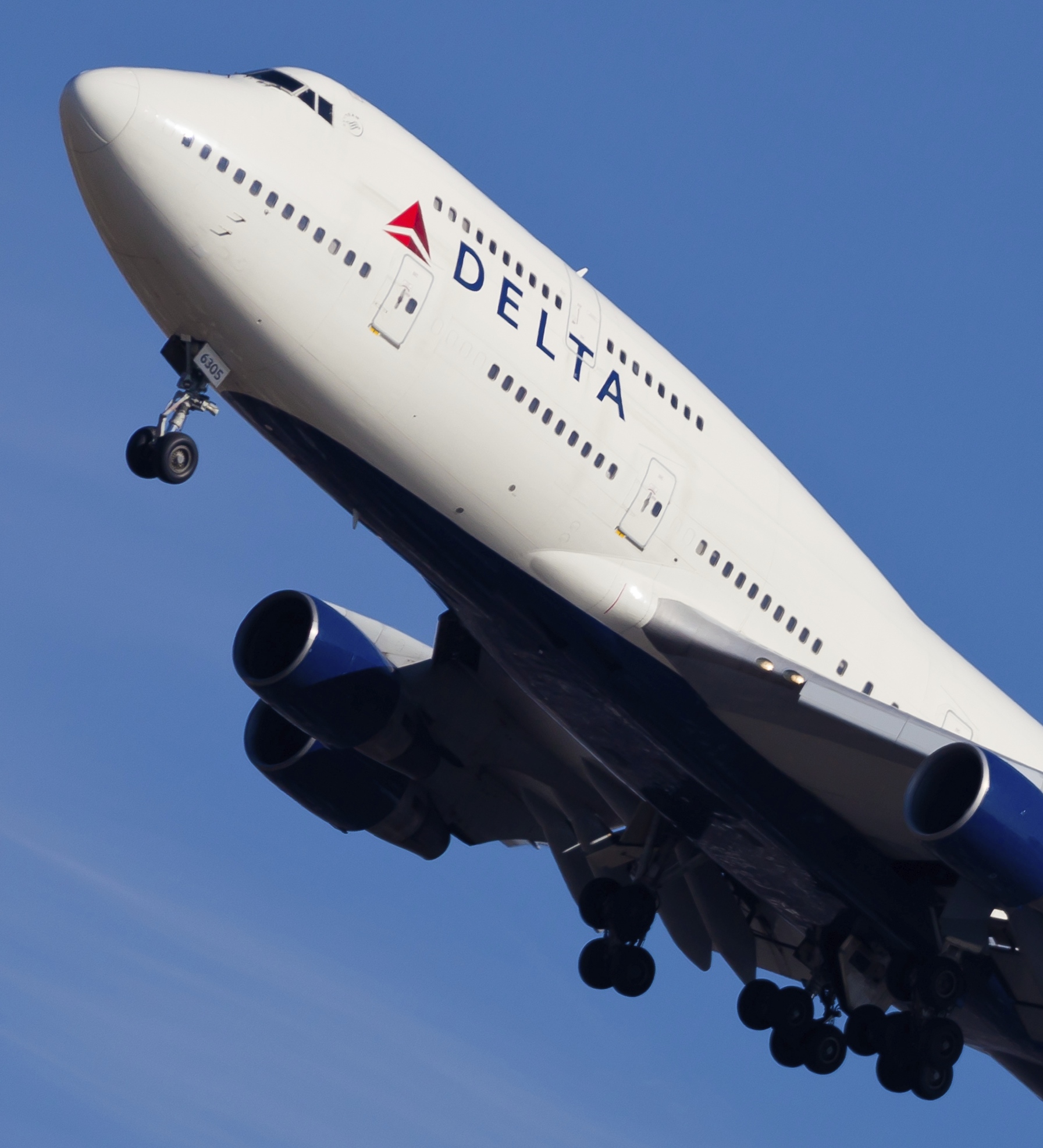
Delta Air Lines Inc. (NYSE: DAL) reported fourth-quarter and full-year 2017 results before markets opened Thursday morning. The airline said it had adjusted quarterly earnings per share (EPS) of $0.96 on operating revenues of $10.25 billion. In the same period a year ago, Delta reported EPS of $0.82 on revenues of $9.46 billion. Fourth-quarter results also compare to the consensus estimates for EPS of $0.88 on revenues of $10.13 billion.
For the full year, Delta posted adjusted EPS of $4.93, compared with last year’s total of $5.32. Operating revenues rose by 4% year over year to $41.24 billion.
The company took a one-time charge of $150 million due to recent changes in U.S. tax law that was excluded from the adjusted EPS calculation. Delta also took a $60 million one-time charge related to the power outage at the Atlanta airport and damage from winter storm Benji.
The airline guided first-quarter 2018 EPS at $0.60 to $0.80 on pretax margin of 6% to 8%. Unit revenue, excluding refinery sales, are forecast to rise 2.5% to 4.5%. Seating capacity is expected to rise about 3%, and consolidated available seat miles are forecast to rise by 2% to 4%, excluding fuel costs and profit-sharing.
CEO Ed Bastian said:
Looking ahead to 2018, we expect to drive solid earnings growth by growing our top line 4 to 6 percent, improving our cost trajectory and integrating our international partner network. As a result, we are able to increase our previous full-year guidance to $6.35 to $6.70 per share due to additional benefits from tax reform.
Delta Chief Financial Officer Paul Jacobson added:
Our focus for 2018 is to bring our unit cost trajectory back in line with our long-term 0 to 2 percent target. We have a line of sight to achieving our cost goal, and expect our March quarter to be the peak of our non-fuel expense growth as we lap investments in our business and higher levels of depreciation, and the savings from our fleet and efficiency initiatives begin ramping up as we move through the year.
Delta’s performance is lifting shares of nearly all U.S. carriers. United Continental Holdings Inc. (NYSE: UAL) was up 2.3% at $74.79; Southwest Airline Co. (NYSE: LUV) was up 2.2% at %64.34; American Airlines Group Inc. (NASDAQ: AAL) was up 2.4% at $55.08, after posting a new 52-week high of $55.39; and Alaska Air Group Inc. (NYSE: ALK) traded up 2.4% at $73.80.
American is expected to report results later this month and analysts are looking for EPS of $0.80 for the quarter, down from $0.92 in the fourth quarter of 2016. Revenues are forecast at $10.44 billion, up from the prior-year quarter’s total of $9.79 billion.
United Continental is scheduled to report earnings on January 23. Analysts have forecast quarterly EPS at $1.21, down from $1.78 a year ago, and revenues of $9.35 billion, up 3.2% from last year’s total of $9.05 billion.
Alaska Air reports results January 25, and analysts are expecting EPS of $0.89, compared with year-ago EPS of $1.56. Revenues are forecast to rise more than 28% from $1.52 billion to $1.96 billion.
Southwest also reports earnings on January 25, and analysts estimate EPS at $0.78, up from $0.75 a year ago, and revenue of $5.24 billion, a 3.2% year-over-year increase.
Delta shares traded up about 2.1% at $57.04 early Thursday. The stock’s 52-week range is $43.81 to $57.44, a new high posted this morning.
Are You Ahead, or Behind on Retirement? (sponsor)
If you’re one of the over 4 Million Americans set to retire this year, you may want to pay attention. Many people have worked their whole lives preparing to retire without ever knowing the answer to the most important question: are you ahead, or behind on your retirement goals?
Don’t make the same mistake. It’s an easy question to answer. A quick conversation with a financial advisor can help you unpack your savings, spending, and goals for your money. With SmartAsset’s free tool, you can connect with vetted financial advisors in minutes.
Why wait? Click here to get started today!
Thank you for reading! Have some feedback for us?
Contact the 24/7 Wall St. editorial team.

